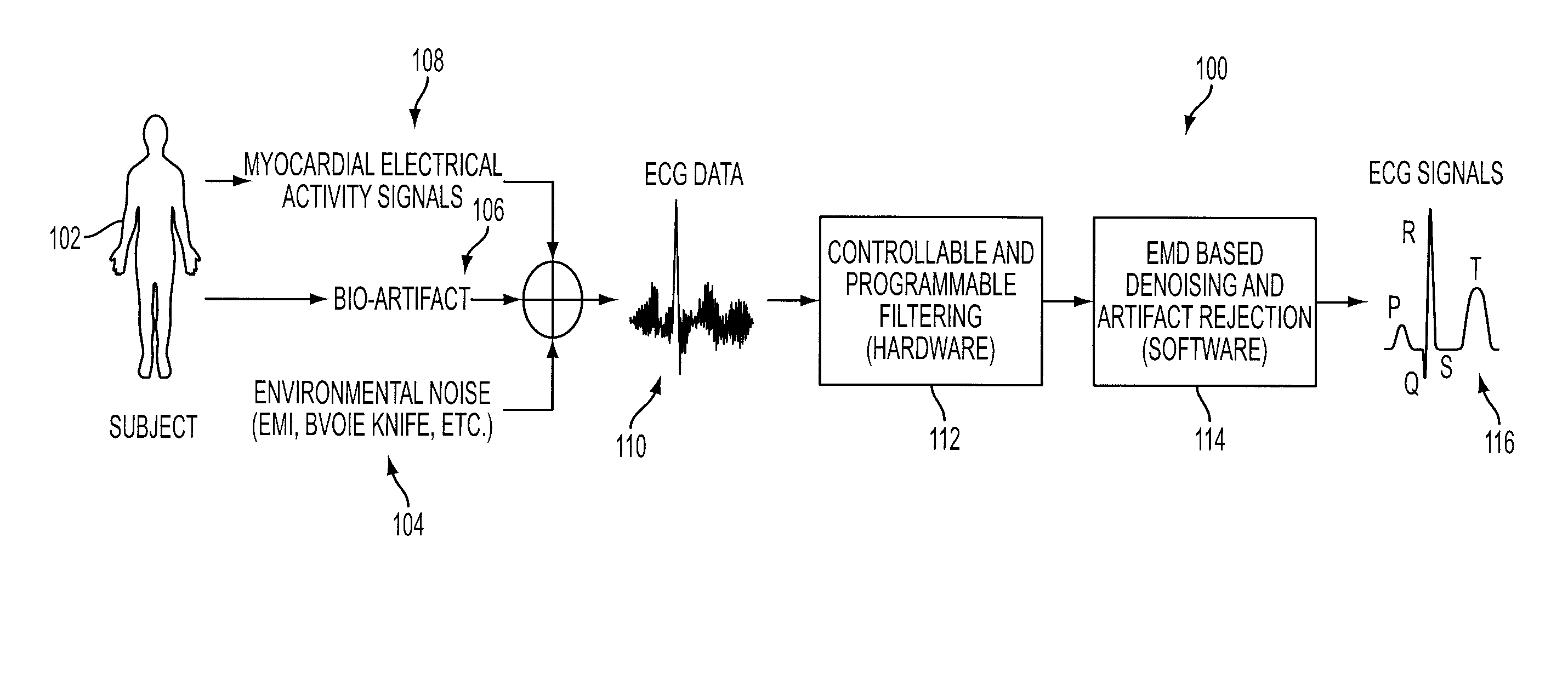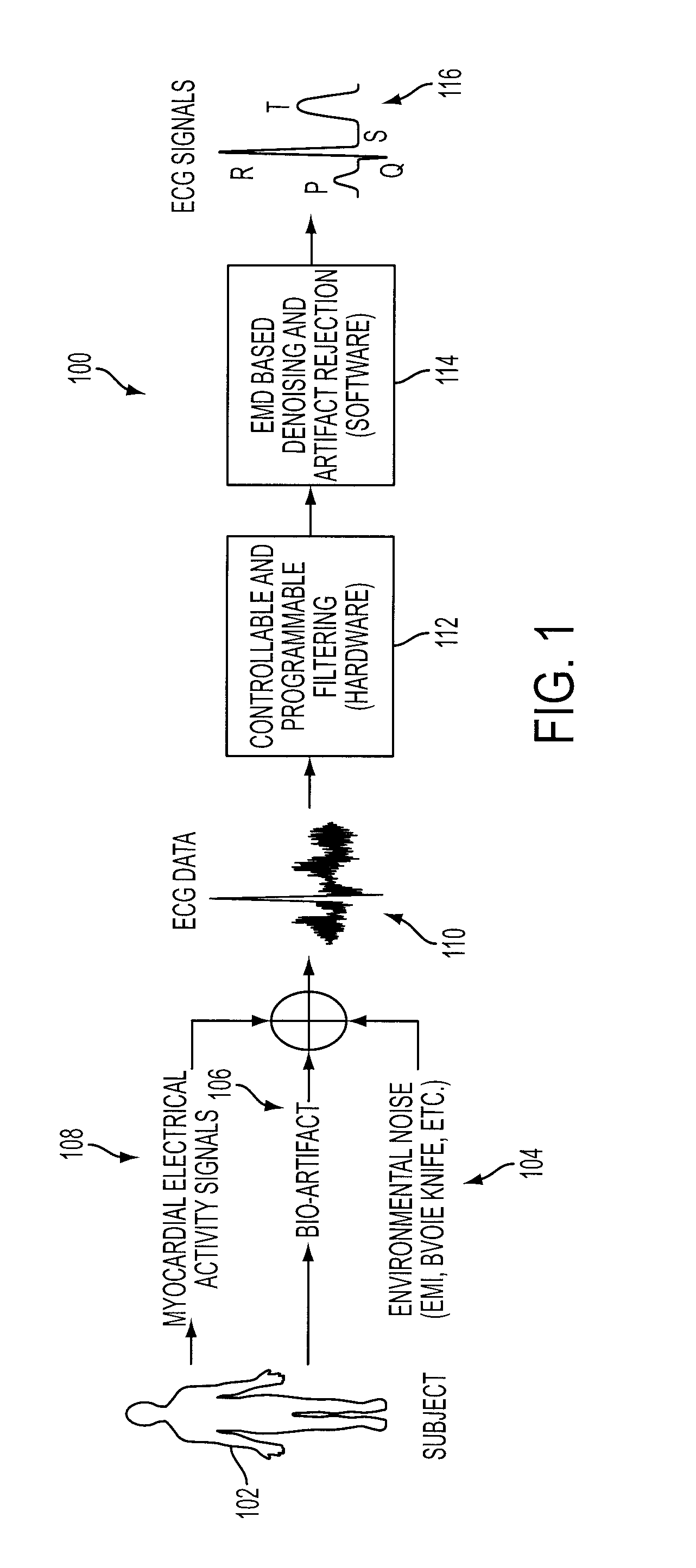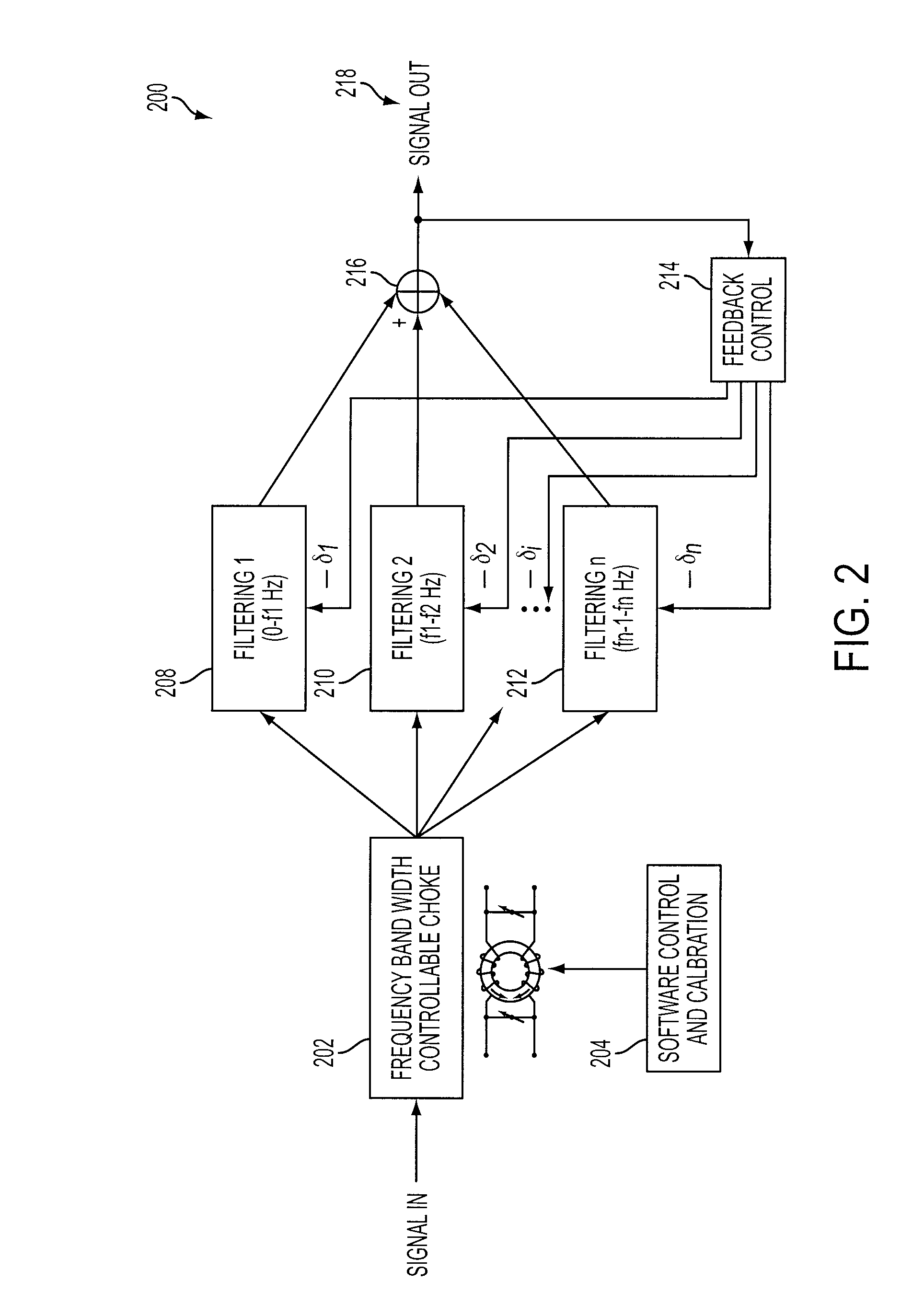Denoising and Artifact Rejection for Cardiac Signal in a Sensis System
a sensis system and cardiac signal technology, applied in the field of denoising and artifact rejection of cardiac signal, can solve the problems of ineffective troublesome shortcoming, and inability to efficiently remove common mode noise and artifact interference by frequency analysis based filtering techniques, etc., to achieve the effect of effective tracking and canceling dynamic noise and artifacts
- Summary
- Abstract
- Description
- Claims
- Application Information
AI Technical Summary
Benefits of technology
Problems solved by technology
Method used
Image
Examples
Embodiment Construction
[0030]An embodiment of the invention provides an efficient method 100 and apparatus 200 for cardiac signal denoising and artifact rejection. The embodiment of the invention provides both adaptive programmable hardware based filters 208, 210 and 212 as well as signal decomposition / reconstruction. In the invention, dynamic noise is defined by an amplitude / frequency / energy distributions of noise that is / are changeable. In an embodiment of the present invention, the adaptive multi-frequency band (at least two frequency band filters) and automatic close-loop (feedback) are used to achieve real-time gain adjustment of the multi-frequency band and to obtain the best signal noise ratio. Hence there is an optimization issue for the multi-frequency band control:
Φ(signal)=f(A1+A2+ . . . +An)
Φ() is the function value of the signal noise ratio; f() is the function to calculate and summarize the signal; Ai is the gain of the ith frequency band. The filtering strategy can achieve the best the si...
PUM
 Login to View More
Login to View More Abstract
Description
Claims
Application Information
 Login to View More
Login to View More - R&D
- Intellectual Property
- Life Sciences
- Materials
- Tech Scout
- Unparalleled Data Quality
- Higher Quality Content
- 60% Fewer Hallucinations
Browse by: Latest US Patents, China's latest patents, Technical Efficacy Thesaurus, Application Domain, Technology Topic, Popular Technical Reports.
© 2025 PatSnap. All rights reserved.Legal|Privacy policy|Modern Slavery Act Transparency Statement|Sitemap|About US| Contact US: help@patsnap.com



